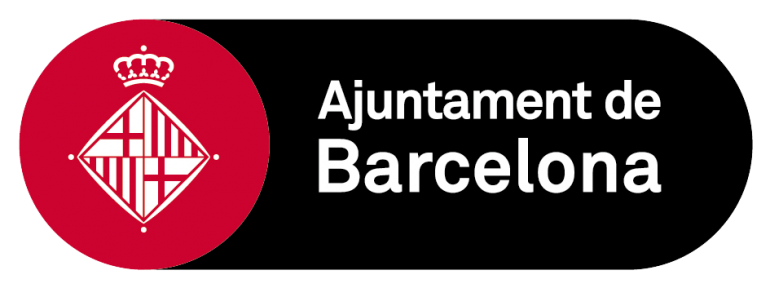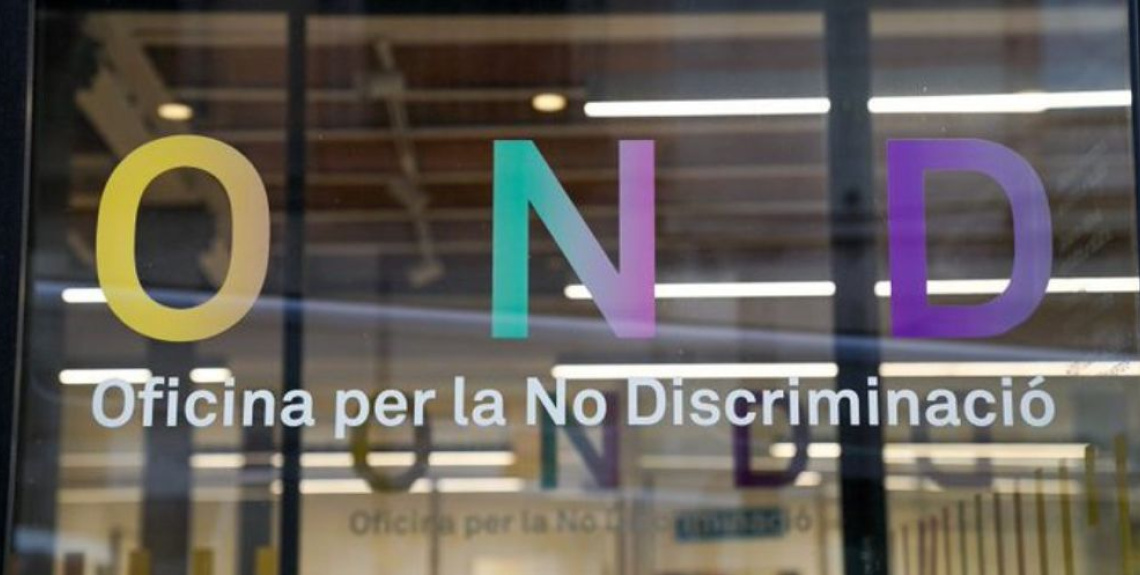As part of the "Human Rights 75" initiative to commemorate the 75th anniversary of the Universal Declaration, the United Cities and Local Governments Committee on Social Inclusion, Participatory Democracy and Human Rights (UCLG-CSIPDHR) interviews Anabel Rodríguez Basanta, Director of the Barcelona Directorate of Citizens' Rights Services, about her work to guarantee the human right to access to justice, the thematic spotlight for August as defined by the Office of the United Nations High Commissioner for Human Rights.
You can watch the full interview here (available only in Spanish).
1. Can you tell us about the Citizens' Rights Services Directorate, please?
The Directorate of Citizens' Rights Services is a unit within Barcelona City Council that, together with others, works to promote the human rights approach, and also to establish mechanisms to guarantee human rights violations, especially in terms of non-discrimination.
2. Why promote the human rights approach in the city of Barcelona?
In the city of Barcelona and in any city. The human rights approach is nothing more than a standard of quality: what are the basic minimum rights that any human being has by virtue of being a person, and it allows the quality of policies and public action to be contrasted or measured. And to do so, moreover, in a non-ethereal way, because sometimes when we talk about human rights, it seems that they are general or not very down-to-earth issues. On the other hand, the human rights approach makes it possible to measure the quality of public and private services, as well as access to basic rights. Therefore, the human rights approach is also a standard that should guide public authorities in defining policies and the model of city that we want, a city that puts citizens at the centre of these policies and this model of city.
3. What is the importance of the local authority in the promotion of human rights?
The local authority is the one that has the most direct contact with citizens and is therefore more aware of the effects of the limitations that citizens face in their development. Therefore, local authorities or governments have that contact with the social reality that makes them more aware and more sensitive to the vulnerabilities of the population. They also have the capacity, which is not infinite, to address vulnerabilities, and they also have the limited capacity to influence and raise their voices to request supra-local authorities to define legal frameworks and public policies that help to reverse human rights violations.
4. What would it take for local authorities to better promote human rights?
Starting from a broad approach, cities need to be more aware of the role they can play in the defence of human rights, to be more committed, bearing in mind that it is not an ethereal and abstract good, but that models of human rights defence allow us to really measure the quality of policies and the attention given to citizens' actions. More awareness of and commitment to the importance of the human rights approach is needed. Above all, we need more alliances between cities in order to have a strong voice to be able to jointly analyse the consequences that global economic and social models bring to the local level, as well as to be able to make proposals for change and legislative frameworks and proposals for improving resources. It is very important to be able to generate a lot of alliance and strength at the local level.
5. How does the promotion of human rights relate to guaranteeing citizen justice?
Our department is not the only department working in Barcelona City Council to promote human rights. We have a unit that works for the commitment to the 2030 Agenda and the Sustainable Development Goals and this is a very important commitment of the city. We also have the Global Justice area that works with the perspective of International Cooperation, establishing many alliances and collaboration with cities; it also works to involve and raise awareness among citizens in a global vision that takes human rights into account, that is, to make citizens and also the authorities of Barcelona aware that our model of life has an impact on the economic and social model at a global level and vice versa. This is a model of social justice applied to energy management and the ecosystem, for example.
Specifically, the Directorate of Citizenship Rights works more focused on mechanisms for the promotion of human rights in municipal services and on non-discrimination and equality mechanisms. In order to apply the human rights-based approach at the municipal level, we have methodological guides that explain how a municipal service or action programme can apply the human rights approach, i.e. make its service more accessible to citizens, by putting citizenship as a subject of rights and not simply as a person to be taken care of. We have methodological tools to apply this approach at a technical level. There is also a training programme to accompany this application in municipal services.
We also have the Office for Non-Discrimination (OND), which is a service of reference at European and international level. We have various interesting initiatives for collaboration between the OND and civil society organisations for the defence of rights, such as the service for victims of discrimination and the Report of the Discrimination Observatory. In 2022, we launched the first plan For an Antiracist Barcelona, which for the first time focuses on raising awareness and reversing the axis of oppression based on racialisation.
6. On which social groups do you focus?
We work with the groups that suffer the most from human rights violations. People with irregular status see their access to basic rights as very limited. For example, last year we ran a campaign to raise awareness and demand the right to open a basic payment account. It is an obligation for all financial institutions to open such a basic payment account for people who do not meet the requirements to open a normal payment account. It is a right that is especially necessary for people with irregular status and it is a fundamental right because nowadays payments are basically electronic, both income received from a salary, an income, a social benefit, as well as payments to be made are already 100% electronic. So not having a bank account is a clear element of financial and social exclusion. We are also actively working on the right to the register.
We work on all areas of discrimination: especially discrimination based on different characteristics of the person, be it racism, LGTBIphobia, ableism, aporophobia, health, with special attention to mental health.
7. Any other examples of work you have done to guarantee human rights that make sense in people's daily lives?
Last year at the Bureau of Victims' Services Entities in the framework of the Observatory on Discrimination, which has been producing a report every year since 2018, we worked on non-discrimination in the broad perspective of access to human rights. In particular, we have worked on the limits of access to justice, which is a human right, but it is also a right that materially allows us to realise and guarantee other rights.
There are many limits in all areas of discrimination, and for large groups of citizens there are difficulties in accessing justice, understood in a broad sense, both to file a complaint and for that complaint to be successful in the courts, as well as in the functioning of the courts, so that on the day of the trial, people really have knowledge, awareness and access to the justice that is carried out. We have worked on this issue with a series of recommendations. First, to highlight what the limits are; this exercise is useful because the entities of each discrimination axis express what the limits are. For example, people with deafness have many problems following court hearings and there is still a lot of work to be done to improve accessibility in all senses in the courts.
8. Why is it important to ensure access to justice?
We have societies in which, unfortunately, rights are violated on a daily basis by private and public actors. There are municipal services, such as the Office for Non-Discrimination, which can help to accompany these processes, but it is necessary to have administrative guarantee mechanisms. Administrative justice mechanisms make it possible, when there is a violation, to restore people's rights and also to restore the general population's confidence in the system. Administrative sanctioning power is also a guarantee mechanism, but there are also limits to access to it. It is not always easy for the administration to fine discriminatory behaviour. There is still a long way to go for justice mechanisms and restorative practices to be deployed within the administration. There are very positive experiences, but they still need to be strengthened.
In the traditional administration of justice, it is essential to have access to mechanisms for the recognition of a violation and reparation of harm, whether criminal, civil, social or administrative. It is important to accompany these processes in three phases: with free justice, that is, with a trial lawyer, and with the guarantee that if you have really suffered a violation, you will receive a favourable sentence condemning the person who has violated your rights. There is no right if there is no guarantee of rights, which is why access to justice is essential. That is why the constant obstacles that people, especially those with less economic capacity, face at the end of a process to be able to see that their rights have been violated are so frustrating.
9. What kind of international cooperation does the Directorate for Citizenship Rights Services aspire to in order to better promote human rights in the field of justice?
We are working with internal European and international networks that denounce situations of discrimination and seek formulas to guarantee these rights in anti-racism issues and in the defence of rights in general. It is very important to generate alliances between cities to increase sensitivity and commitment in the defence of rights and to exchange good practices. Barcelona is not the only city that can share good practices; there are many small and medium-sized cities that are tremendously innovative and are looking for ways to defend rights.
The contact and technical exchange between cities is very enriching and it is very important to generate alliances to be able to give a voice to the authorities and local governments. In the case of European cities, national policies are highly influenced and determined by the policies defined at the European level and it is essential that cities, with security towards the defence of human rights and non-discrimination, can define various proposals to ask for other policies or to adapt policies in the sense that they are needed in the territory.
10. And how does this exchange of practices materialise, which is necessary so that Barcelona can also learn from other cities?
We are part of networks of cities. Bilateral exchanges, conferences, reports, results, and working groups are also important. We identify monographic working groups on issues in which we have participated, for example Islamophobia, in order to identify good practices and recommendations at the local level.
11. Any message you would like to send to the membership of the Committee?
I would like to congratulate UCLG for the Global Campaign 10, 100, 1000 Cities and Territories for Human Rights. It is very important to keep moving forward with this campaign, to keep questioning and engaging the interest of cities in the defence of human rights. The campaign is a useful tool in the practice of defining cities and public policies, and as an instrument we must continue to make progress in its implementation.
With the support of:



